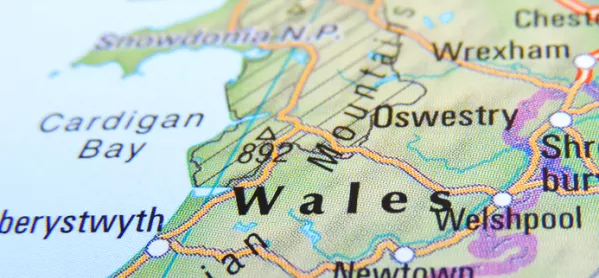Why critics of league tables should look at Wales

Part of the fun of working on education policy in both Scotland and England is seeing how differently people on each side of the border respond to the same ideas and phenomena. Last week’s row over school league tables is a perfect illustration.
Down south, public performance metrics have been part of the furniture for almost 30 years, with an official government website encouraging parents to “find and compare schools”. By contrast, in Scotland one newspaper’s decision to produce a ranking of primary schools ordered by Curriculum for Excellence attainment was condemned by educationalists as unproductive and irresponsible, just as similar exercises have been criticised in the past.
On the face of it, the Scottish government is similarly opposed: first minister Nicola Sturgeon has said she is against “crude league tables”, though critics argue that by publishing data on a school-by-school basis, the government is issuing an open invitation to produce league tables.
A secondary head’s view: Why league tables don’t reflect schools’ amazing work
GCSEs results 2021: Hard to put exams ‘genie’ back
More by Aveek Bhattacharya: Why the ferocious resistance to the idea of ‘catch-up’?
A difference of approach between Scotland and England isn’t in itself all that surprising. The two nations have gone in separate directions on curriculum design, school choice, school autonomy and a host of other areas. What is more interesting is that on league tables, Scotland finds itself out of step with Wales.
What are the benefits of school league tables?
The Welsh and Scottish governments tend to be aligned on a “progressive” approach to education - for example, Wales’ curriculum reforms are modelled on Scotland’s and both countries have in recent years created similar institutions to promote regional collaboration rather than inter-school competition. That makes it harder to reject Wales’ example than it is to dismiss the “neoliberal” English.
Having inherited school league tables following devolution, the Welsh government actually decided to abolish them in 2002, scrapping standardised tests at the same time. Within a decade, it had reversed course, reintroducing league tables in 2011 and national reading and numeracy tests in 2013.
Academic analysis found that the abolition of league tables had a negative effect on Welsh students’ attainment, particularly for those in more disadvantaged neighbourhoods. An adviser to the Welsh government described the research as a “slap in the face with good data”, which contributed to the decision to bring back public performance measures. The perception within the Welsh government was that without transparent metrics, it was impossible to hold schools accountable and identify under-performance.
This story should give Scotland pause, and encourage it to look more closely at what it might learn from Wales. Welsh league tables are carefully collated, using a range of indicators and contextual information - not just exam results, but also attendance rates, relative improvement and the proportion of students on free school meals. They are also averaged over three years to ensure that the data is more robust.
By contrast, the Scottish government decision to leave league tables to the newspapers means they cannot do anything to stop them using crude or unfair measures. The genie is out of the bottle - and it’s not clear that we best are served trying to stuff it back in.
Dr Aveek Bhattacharya is chief economist at the Social Market Foundation (SMF), a Westminster-based think tank. He is from Scotland and compared school choice in Scotland and England as part of his PhD. He tweets @aveek18
Register with Tes and you can read two free articles every month plus you'll have access to our range of award-winning newsletters.
Keep reading with our special offer!
You’ve reached your limit of free articles this month.
- Unlimited access to all Tes magazine content
- Save your favourite articles and gift them to your colleagues
- Exclusive subscriber-only stories
- Over 200,000 archived articles
- Unlimited access to all Tes magazine content
- Save your favourite articles and gift them to your colleagues
- Exclusive subscriber-only stories
- Over 200,000 archived articles
topics in this article



